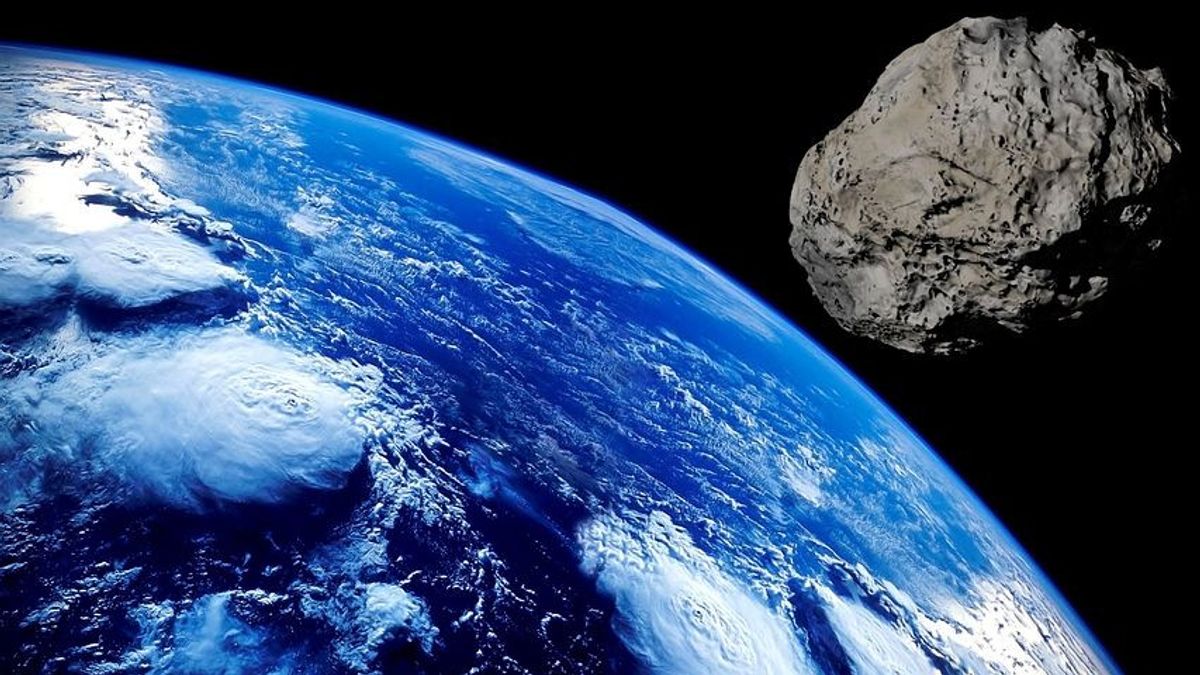JAKARTA - A research study from Osaka University revealed that an asteroid rained on the Earth and the Moon 800 million years ago. This event is thought to have triggered the worst ice age on planet Earth.
Quoting from CNN International, this large enough asteroid rain has hit Earth for quite a long time. Even the asteroid that fell was bigger than the comet that wiped out the dinosaurs 66 million years ago.
This investigation began when scientists found many signs of cosmic size, which are quite large, from the craters on the Moon. This report was submitted by the Japanese Kaguya spacecraft.
As a result, eight of the 59 large craters on the Moon formed at the same time. One of them is the Copernican crater, which has a diameter of 93 km and was the site of the Apollo landing on the Moon.
Using a sample of radiometric material taken from the Copernican crater, the researchers estimated the existence of a fairly large asteroid 100 km in diameter hitting the Moon. The incident was suspected to have caused an asteroid rain which then hit Earth.
With the assumption that asteroid showers that bombard the moon will also have an impact on Earth. Scientists predict that 40 to 50 trillion metric tons of meteoroids have hit Earth in an asteroid shower.
"From these considerations, I can say that it is not surprising that asteroid rain 800 million years ago may have triggered an ice age. Because the total mass of 800 million years ago in our study was 10 times greater than the impact of the comet Chicxulub," said Professor Kentaro Terada. from Osaka University, Saturday July 25th.
In his scientific journal, Terada revealed, the meteoroid showers millions of years ago carried an extraordinary number of particles and had the potential to trigger an ice age in the middle of the Ordovician century or before the Cryogenian period 635 million to 720 million years ago.
During the Cryogenian period, the Earth was enveloped in its greatest ice age. According to Terada, previous research showed that the Chicxulub impact detonated large amounts of dust, which darkened the sky and cooled the Earth. But meteoroid showers millions of years ago also had the same effect.
"From these considerations, I can say that it is not surprising that an asteroid shower 800 million years ago may have triggered an ice age. Because the total mass of 800 million years ago in our study was 10 to 100 times greater than the Chicxulub impact and meteoroid showers. 470 million years ago, "concluded Terada.
The English, Chinese, Japanese, Arabic, and French versions are automatically generated by the AI. So there may still be inaccuracies in translating, please always see Indonesian as our main language. (system supported by DigitalSiber.id)













